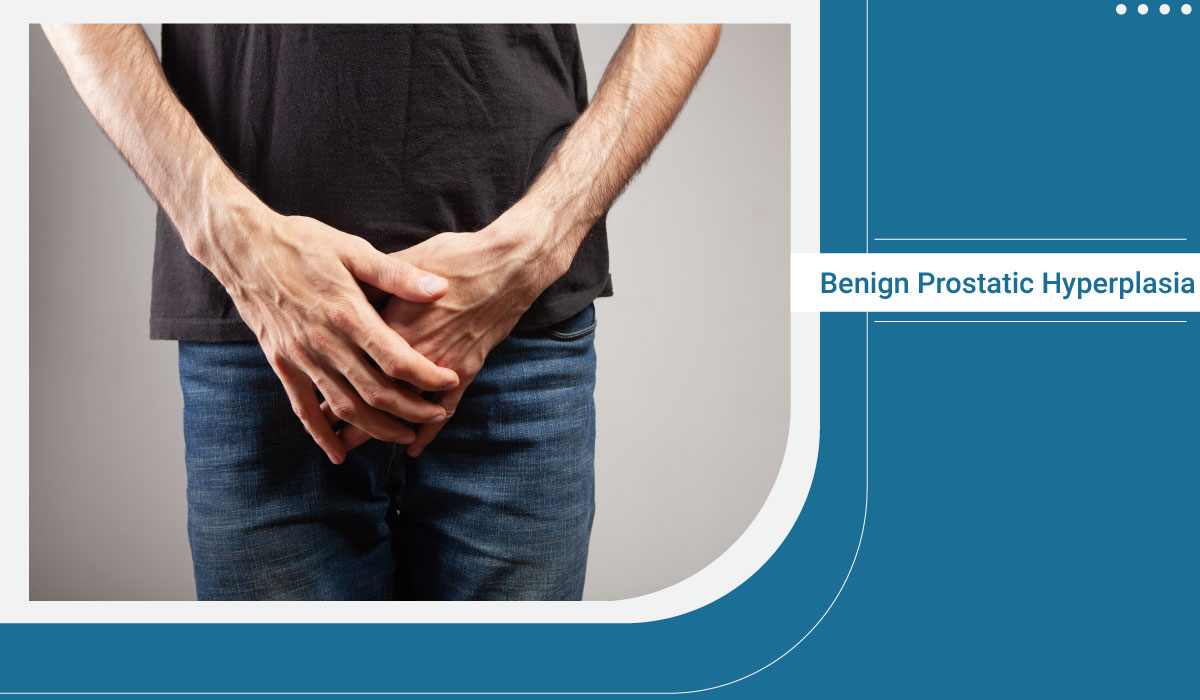
For Appointment: Call Us: +91 9484993617
Opening Hours: 12pm-6pm (Daily Except Thursday)

For Appointment: Call Us: +91 9484993617
Opening Hours: 12pm-6pm (Daily Except Thursday)

One of the most common bodily changes that occur in men during old age is dealing with the so-called “urine problems”. These problems with the frequency and outlet of urine in old age are an outcome of the condition known as benign prostatic hyperplasia. To treat your prostatic hyperplasia effectively your doctor will certainly go through certain factors such as your natural prostate size, symptoms, history of health issues, etc. in this blog we will first discuss what BPH really is and then go through each of the factors that are necessary to be able to choose the best treatment option.
The prostate is a gland that surrounds the urethra. It is a heterogeneous organ whose anterior region is mainly composed of smooth muscles and fibrous tissue. At the upper urethra, there is a region of prostate wrapping around the urethra known as the pre-prostatic sphincter. The posterior end of the prostate is composed of smooth muscle, fibrous tissue and glandular acini, and prostatic fluid.
In benign prostatic hyperplasia, the total number of cells contained in the prostate gland increases. By increase in the number of cells, the size of the gland increases. As the prostate grows it pushes up against the fibrous capsule that surrounds the prostate. This causes the pressure to be increased on the urethra. This increase in inter-glandular pressure causes the symptoms of BPH. The other factor that causes the symptoms of BPH is an increase in smooth muscle tone. These smooth muscles usually help in the continent but due to getting overactive, it causes urinary retention.
Benign prostatic hyperplasia is mostly categorized as an old man's disease because with age, the chances of incorporation of this disease increase. There are various theories as to why age affects the prostatic gland in this manner to cause BPH.
One theory proposes that in old age, the prostate tissue has increased receptivity to growth factors. This supposedly happens because some of the stromal tissue in the prostate reverts to the embryonic stage in which it becomes very susceptible to growth factors. Also, with age, there is an increased production of estrogen in men. Estrogenic seems to prime the androgen receptors in the prostate.
A type of androgen called DHT activates androgen receptors in the prostate with ten times more potency in doing that than testosterone. Testosterone inside the prostate gets converted into DHT by an enzyme called 5 alpha reductases. DHT stimulates androgen receptors which in turn stimulate stromal cells to grow in number. However, it is seen in people who suffer from BPH that testosterone and DHT do not increase but the receptors themselves tend to be hyperactive. So, the reason that we give for this hyperactivity is the presence of estrogen in old age men but other than that it is not known why this happens.
It is seen in the patients that the complications caused by the symptoms of BPH vary but one thing that remains certain in all BPH patients is that their symptoms become more and more severe with time. Also, it is not the enlargement of the prostate that contributes to the symptoms becoming severe. In fact, some people with very large prostates show less symptoms than people with slight enlargement of the prostate. Some of the general symptoms of BPH are as follows:
As opposed to benign prostatic hyperplasia, prostatic cancer has an entirely different pathophysiology. Prostatic cancer is completely glandular in origin in which cells inside the prostate develop genetic mutations. This causes the deregulation of growth in those cells and as a result of this, they start copying and growing in size. This is a typical start of the tumor. This is the main difference between BPH and prostatic cancer.
If the retention of urine due to BPH reaches the level of causing the blockage, a patient might need to drain the urine out with the help of a catheter
Benign prostatic hyperplasia is something to expect in your old age. The best way to delay is to life a healthy life. Once you have developed BPH it is important that you consult your doctor for proper regulation of this condition
For more information, contact Alfa Kidney Care at: https://alfakidneycare.com/